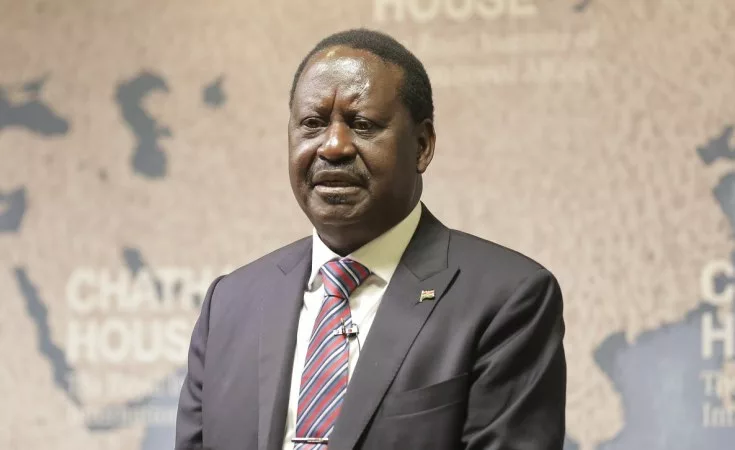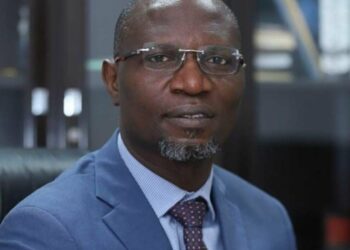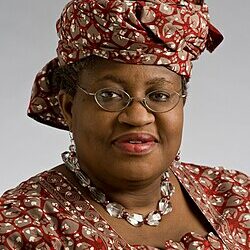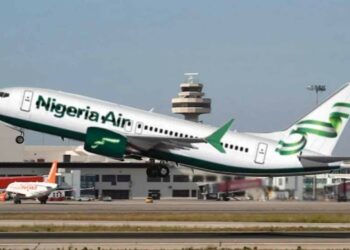In this exclusive interview with NATIONAL ECONOMY, the respected and globally acclaimed politician, former prime minister of Kenya, Rt Hon Raila Odinga spoke extensively on why Africa should improve on intra-continental trade and why it’s important for the continent to address infrastructural deficit for the African Continental Free Trade Area (AfCFTA) to succeed among others.
There have been positive and some scepticism about the economic impact of the African Continental Free Trade Area (AfCFTA) on the continent. How do you think these deep-seated threats and challenges can be successfully addressed?
Africa should trade more with itself because that is how Africa is really going to grow. As you know, there are a lot of restrictions in other markets outside the continent. Look at Europe, the European trade stands at 70 per cent. Asian trade stands at 50 per cent. Even in South America, it stands at close to 30 per cent but in Africa, trade was just 15 per cent. When we set up the African continental Free Trade Agreement, first you know, the issue of setting up proper institutions to implement. There are others in which much progress could have been made particularly non-tariff barriers to trade, removing this I think the process has been slow, but it’s coming. But another one I see is infrastructure. Lack of infrastructure is a major impediment to intra African trade. You find out we don’t have infrastructure that connects people to the continent, like you trade between Kenya and Nigeria. It is a problem because you have to put goods in the ship and the shipping is not very developed in the continent to move from the Nigerian ports around the clip to the eastern seaboard, it takes a very long time. But we are planning to have a connection like what we called the LAPSSET-Lamu port South Sudan-Ethiopia railway network. Lamu is a port in Kenya. Phase one is supposed to go to Juba; phase two is supposed to go through Bangi instead of Benin Republic, Yaounde, creating the land bridge connecting Atlantic and the Indian Ocean and then branching into North Sudan nudging into Chad, Niger into Congo Brazzaville, Congo, Gabon and Nigeria from Cameroon so goods coming from Nigeria can go all the way across the continent to the eastern seaboard. And goods coming from the east, from Japan, from India, from China can come to Lamu in Kenya and then across the continent and the West can also come to that port of Cameroon and then across the continent. And then another one which is planned to move from Lagos across the western coast to Cotonou to Lome to Accra, Abidjan, Freetown go all the way to Conakry to Accra to Morocco, Algeria, Cairo, Cairo to Lagos along the western seaboard then you’ve got highway East African highways, one from Dakar through Jimena Chad and then there’s one Dakar to Lagos, Lagos, Mombasa, East Africa. Then Cape town to Cairo. Then you got Tunis coming to the western coast also to the Cape. All these are meant to open up the continent, the railway networks. Then the river transports the Mediterranean to Lake Victoria, the one in the Congo. Then you’ve got the fibre optic network that will facilitate communication across the continent, to all the capitals of continents and then you’ve got the open skies that will lower the cost of air transport in the continent. It requires construction of airports and expansion of some of the existing ones and also coming up with one African Air Traffic command so that you can be able to lower the cost.At the moment to fly from Nigeria to Nairobi is very expensive, because you have to pay overflight fees to the countries you are transiting and you have to also get permission before you take off. So, if you’re trying to fly one private aircraft, you go through a lot of problems flying over the continent, and like in Europe, you got only one air traffic control in Europe. So, all these are issues that need to be resolved quickly and we are really trying to see how to fast track these issues.
Africa loses $7billion to $15billion a year because of climate extremes.What is the best way to address climate change in Africa?
Climate Change is not something that you can address just in one region because it’s a global phenomenon. Actions which are taken thousands of kilometers away from Africa in the United States, Europe, Asia, all countries affect Africa. So, Africa is more like a victim than the cause of this climate change. We suffer the consequences because of actions taken outside the continent. However, we ourselves have also got a responsibility that we must take very seriously in Africa. First, we must do afforestation on our continent. You’ve seen the way the Sahara is advancing at an alarming rate. Afforestation is one area where Africa is supposed to take its importance and also moving our people from dependence on charcoal, firewood as a source of energy homes to less polluting sources, like energy here in Nigeria can be used as a source of energy here. Also you’ve got several other renewable sources in the continent, solar we can use that to generate power, then you got wind also as a source, in some places in Kenya, you got geothermal which is also available in abundance, you can also convert to geothermal, some places like in South Africa and Morocco which get wind power which can also be utilised. So we need to as a continent, play our role rather than just playing the blame game, we are victims, we can also make a substantial contribution to ensuring that this phenomenon is arrested.
The question of corruption is a big issue in Kenya, Nigeria as well as other African nations, what do you think can be done to curtail or fight the menace to a standstill in the continent?
Corruption is a vice that is as old as human society has existed. Even you see in the Bible there was corruption. Corruption exists all over the world. The difference is what is done with those who are corrupt. That is where the difference is. You will find in the USA, for example, or even in Europe, when somebody is found to have committed something that is corrupt, action is taken. And there are no sacred cows. Everybody is subjected to action if he is found to have committed corruption.
Our problem here on the continent is that in some countries, corruption is tolerated, it has been tolerated by the government itself, the institutions of governance at the levels of police or investigations, or at the level of execution, or the judiciary itself. So, all these institutions are the ones that require serious purging and reforms, so that you have institutions that can act independently and not tolerate corruption.
Because corruption diverts resources from the public to private hands and basically undermines growth and development in society. You will find, for example, projects which are publicly-funded, a highway that is supposed to be constructed, but the highway, other buildings are constructed elsewhere. So, just a very small percentage of funds actually go to that project on the highway. Procurement is the same way. Resources which are meant for public good are diverted into private hands and that itself slows the growth and development of our societies.





